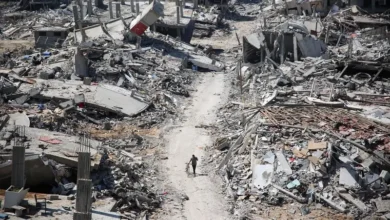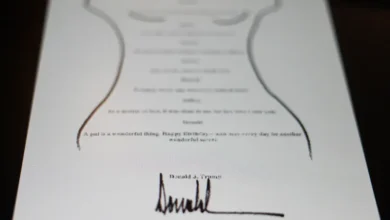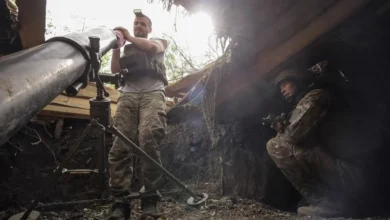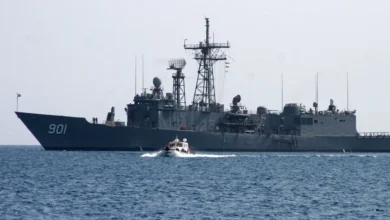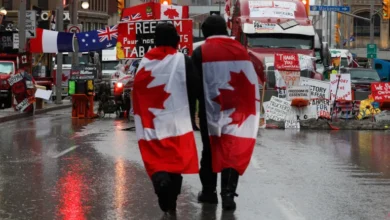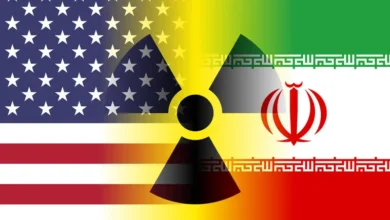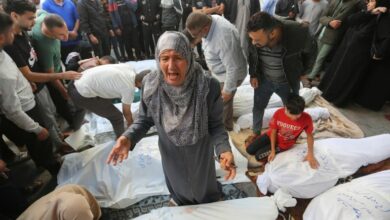‘Losing hope’: Sudan civilians terrified as RSF attacks second-biggest city
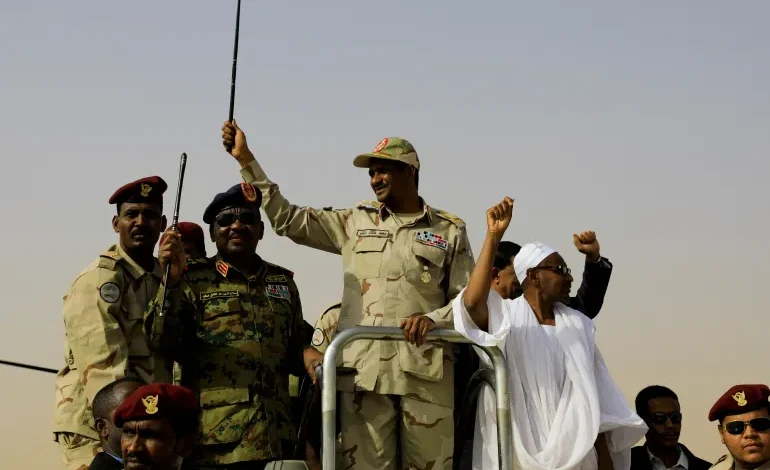
On December 15, Sudanese civilians woke up to sounds of gunfire and explosions in Wad Madani, a city under army control that hosts hundreds of thousands of displaced people from the capital Khartoum and nearby towns.
The paramilitary Rapid Support Forces (RSF) had attacked the city, raising fear that the group would loot homes, kill men and rape women if they captured it.
“They rape [women] to break the spirits of men,” Omonia Kheir*, a Sudanese woman from Wad Madani, told Al Jazeera. “That’s why people here are not scared of dying or getting shot, because then you die as a martyr. But everyone is scared of [women in their families] getting raped.”
After eight months of war, the RSF is on the verge of capturing Wad Madani, the second-largest city in the country’s heartland, in what will mark a major turn in the conflict. Just last week, RSF leader Mohamad Hamdan “Hemedti” Dagalo agreed to meet top army general Abdel Fattah al-Burhan later this month under the auspices of the East African bloc IGAD.
But even as RSF commanders call for an end to the war with foreign leaders, their fighters are instigating a new humanitarian catastrophe on the ground.
“My mother and I were shocked,” said Kheir, on Sunday. “In every neighbourhood we saw 10 or 20 families leaving [town]. People were walking, going in cars, lorries and on donkeys.”
Losing faith in the army
While the RSF has reportedly invaded the city and looted banks and shops, the army has responded with air strikes, even as its foot soldiers retreat.
Most residents support the army, yet few believe they’ll regain control of the city.
“People are already heavily criticising the military,” said Kheir. “Wad Madani is the second-biggest city in Sudan and it hosts the largest number of displaced people…everyone expected that the army would protect it [from the RSF].”
“People are now losing faith and hope. Everyone is just hysterical,” she added.
Most aid groups and UN agencies have also evacuated foreign staff and closed operations in Wad Madani, said Will Carter, the country director for the Norwegian Refugee Council in Sudan.
He told Al Jazeera that aid groups did not want to get trapped in a situation where the RSF captured the city, prompting the army to respond with heavy and indiscriminate air strikes.
Carter added that the RSF has “shaken” the already hampered humanitarian response, which operates almost entirely out of the army’s de facto capital in Port Sudan.
“Wad Madani was a gateway to reach three or four other nearby cities with aid,” he said. “But if the RSF sweeps Wad Madani, then it really sweeps Sudan’s heartland. Logistically, it will make things quite difficult [for aid agencies] and the question then becomes where the RSF will go next if the army can’t shore up a defence.”
Unlawful arrests and killings?
During the first two days of the offensive, rumours circulated that the RSF had sleeper cells in Wad Madani, prompting the army to unlawfully arrest dozens of young men suspected of cooperating with the group.
Residents say that those detained were targeted based on their accent or ethnicity, which hints that they’re from traditionally neglected regions like Darfur – an RSF stronghold.

